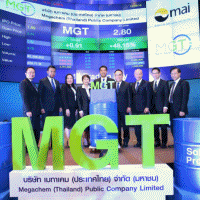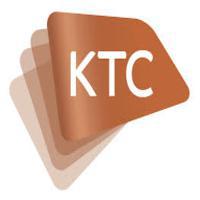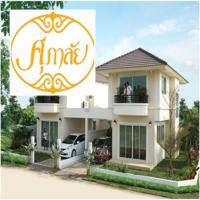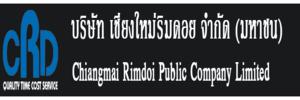ปรับเกมกลยุทธ์ธุรกิจอสังหาฯ พิชิตใจผู้บริโภคยุค 4.0
ตลาดที่อยู่อาศัยของไทยมีแนวโน้มฟื้นตัวดีขึ้นหลังจากที่ได้ชะลอตัวในช่วงหลังมาตรการกระตุ้นของภาครัฐได้หมดลง อีไอซีประเมินมูลค่ายอดโอนจะฟื้นตัวราว 7% ในปี 2018 ตามการฟื้นตัวของเศรษฐกิจ การขยายตัวของโครงสร้างพื้นฐาน ขนาดครอบครัวที่เล็กลง และความต้องการในทำเลที่มีศักยภาพสูง ซึ่งผลักดันให้เกิดการพัฒนาโครงการใหม่ๆ อย่างต่อเนื่องและทำให้การแข่งขันรุนแรงขึ้น นอกจากนี้ภาวะตลาดปัจจุบันที่เป็นตลาดของผู้ซื้อกลายเป็นโจทย์ที่ยากขึ้นในการพัฒนาโครงการต่อๆ ไป ผู้ประกอบการจึงต้องระมัดระวังในการเปิดโครงการใหม่มากขึ้น สร้างความแตกต่าง และเข้าใจผู้บริโภคให้ลึกขึ้น อีไอซีพบว่า 3 กลยุทธ์สำคัญในการเพิ่มขีดความสามารถในการแข่งขันคือ 1) ออกแบบโดยให้ความสำคัญต่อความต้องการของกลุ่มลูกค้าเป้าหมายมากยิ่งขึ้น 2) จับมือพันธมิตรทางธุรกิจเพื่อพัฒนาสินค้า ถ่ายทอดความรู้ เข้าถึงผู้บริโภคกลุ่มใหม่ และสร้างภาพลักษณ์ของแบรนด์ และ 3) พัฒนาแพลตฟอร์มบริการหลังการขายใหม่ๆ เพื่อเพิ่มโอกาสในการขายและต่อยอดนำ Big data มาพัฒนาสินค้าและบริการ
อีไอซี พบว่า ไลฟ์สไตล์ที่แตกต่างของผู้บริโภคในแต่ละช่วงอายุ รวมถึงนวัตกรรมเทคโนโลยีล้วนมีอิทธิพลต่อการพัฒนาและการขายโครงการที่อยู่อาศัยในอนาคต ในส่วนของตลาดคอนโดมิเนียม ผู้บริโภคยังให้ความสำคัญกับพื้นที่ส่วนกลาง รวมทั้งอยากอยู่ใกล้แหล่งชุมชน ใกล้แหล่งร้านอาหารและเครื่องดื่มเพิ่มเติมจากแค่ใกล้รถไฟฟ้า นอกจากนี้ บทบาทของเทคโนโลยีอย่าง smart home มีแนวโน้มจะกลายเป็น new normal ในอนาคต โดยเฉพาะด้านที่เกี่ยวข้องกับความปลอดภัยและการจัดการพลังงาน นอกจากนี้ ผู้บริโภคจะเปรียบเทียบและหาข้อมูลผ่านช่องทางดิจิทัลมากขึ้นซึ่งข้อมูลการเข้าใช้บริการเหล่านี้จะกลายเป็นแหล่งข้อมูลขนาดใหญ่ที่จะช่วยให้ธุรกิจด้านอสังหาริมทรัพย์เข้าใจผู้บริโภคได้ดียิ่งขึ้นอีก
แม้ว่าผู้บริโภคไทยส่วนใหญ่อยากได้ที่อยู่อาศัยแนวราบโดยเฉพาะบ้านเดี่ยว แต่คอนโดมิเนียมจะยังคงเป็นตลาดใหญ่ โดยเฉพาะกลุ่มคนรุ่นใหม่ที่กำลังเข้าสู่วัยทำงานที่คอนโดมิเนียมเป็นทางเลือกที่ตอบโจทย์มากกว่ารูปแบบอื่นด้วยเรื่องทำเลและกำลังซื้อ ขณะที่กลุ่ม Gen X และเบบี้บูมเมอร์ต้องการคอนโดมิเนียมเพื่อตอบโจทย์เฉพาะ เช่น ภาระการดูแลที่อยู่อาศัยที่น้อยกว่า ซื้อเพื่อลงทุน หรือซื้อให้บุตรหลาน อย่างไรก็ดี มุมมองจากผลสำรวจพบว่าหากไม่มีข้อจำกัดในเรื่องต่างๆ ผู้บริโภคส่วนใหญ่อยากได้ที่อยู่อาศัยแนวราบมากกว่าโดย 87% ของผู้ตอบแบบสำรวจสนใจซื้อที่อยู่อาศัยแนวราบโดยเฉพาะบ้านเดี่ยว
การพัฒนาโครงการที่อยู่อาศัยต้องเน้นตอบโจทย์มากกว่าแค่การอยู่อาศัยเพื่อสอดรับกับพฤติกรรมของผู้บริโภคที่เปลี่ยนแปลงไป ซึ่งรวมถึงการให้ความสำคัญกับพื้นที่ส่วนกลาง และทำเลใกล้สิ่งอำนวยความสะดวก ผู้บริโภคไทยให้ความสำคัญกับความสมดุลของการทำงานและการใช้ชีวิต และยอมรับการแชร์ในสังคมมากขึ้น ส่งผลให้พื้นที่และฟังก์ชั่นการใช้งานพื้นที่ส่วนกลางในโครงการ
มีผลต่อการเลือกซื้อที่อยู่อาศัยมากขึ้น ผู้ประกอบการจึงควรออกแบบฟังก์ชั่นการใช้งานที่หลากหลายมากขึ้นอย่างเช่น การมี co-working space และ co-recreation ในที่อยู่อาศัย ตลอดจนพื้นที่ที่จะสามารถรองรับการแชร์ในด้านอื่นๆ ต่อไปในอนาคต เช่น พื้นที่จอดรถยนต์ส่วนกลางที่ใช้ร่วมกัน เป็นต้น นอกจากนี้ ไม่เพียงแค่ทำเลที่เดินทางสะดวกหรือใกล้ที่ทำงานเท่านั้น แต่ทำเลใกล้สิ่งอำนวยความสะดวกก็มีความสำคัญ ไม่ว่าจะเป็นศูนย์การค้า ร้านอาหาร ศูนย์บริการสุขภาพซึ่งส่งผลให้โครงการมิกซ์ยูสมีแนวโน้มได้รับความนิยมมากขึ้น
เทคโนโลยีจะเข้ามามีบทบาททั้งในส่วนของ smart home และ prop tech โดยในส่วนของ smart home แม้ว่ายังไม่แพร่หลายนัก แต่คนรุ่นใหม่ให้ความสนใจมากขึ้น จากผลสำรวจพบว่า 90% ของกลุ่มคนที่อายุต่ำกว่า 30 ปีเห็นว่าอุปกรณ์ smart home มีอิทธิพลต่อการตัดสินใจซื้อที่อยู่อาศัย โดยเฉพาะระบบเตือนภัยและระบบจัดการพลังงาน นอกจากนี้ ช่องทางดิจิทัลจะมีบทบาทในการตัดสินใจเลือกซื้อที่อยู่อาศัยมากขึ้นเนื่องจากผู้บริโภคมีการเปรียบเทียบข้อมูลมากขึ้น โดยกว่า 50% ของผู้ตอบแบบสำรวจสนใจเข้าชมโครงการหลังได้รับข้อมูลรีวิวออนไลน์ ผู้ประกอบการจึงควรหันมาให้ความสำคัญกับการพัฒนาแพลตฟอร์ม prop tech ใหม่ๆ อาทิ การนำเสนอข้อมูลเพื่อให้ผู้บริโภคเปรียบเทียบโครงการได้ง่ายขึ้น รวมถึงการนำเสนอบริการหลังการขายรูปแบบต่างๆ ตลอดจนการนำ prop tech มาใช้เป็นเครื่องมือในการบริหารจัดการโครงการ
การแข่งขันที่รุนแรงขึ้นส่งผลให้ผู้ประกอบการต้องเร่งสร้างความแตกต่างโดย 3 กลยุทธ์สำคัญที่ไม่ควรมองข้าม
คือ 1) ออกแบบโดยให้ความสำคัญต่อความต้องการของกลุ่มลูกค้าเป้าหมายมากยิ่งขึ้น อย่างเช่น universal design ที่ตอบโจทย์การใช้งานของผู้บริโภคหลากหลายกลุ่ม 2) จับมือพันธกิจทางธุรกิจเพื่อพัฒนาสินค้า ถ่ายทอดความรู้ เข้าถึงผู้บริโภคกลุ่มใหม่ และสร้างภาพลักษณ์ของแบรนด์ อย่างเช่น จับมือกับสตาร์ทอัพเพื่อนำเสนอเทคโนโลยีใหม่ๆ ในการอยู่อาศัยอย่างเช่น สมาร์ทโฮม และ 3) พัฒนาแพลตฟอร์มบริการหลังการขายใหม่ๆ เพื่อเพิ่มโอกาสในการขายและต่อยอดนำ Big data มาพัฒนาสินค้า
และบริการ อย่างเช่นการพัฒนาแพลตฟอร์มกลางเพื่อรวบรวมบริการหลังการขาย หรือการใช้ประโยชน์จาก Big data ในการวิเคราะห์พฤติกรรมผู้บริโภคหรือปัญหาที่พบจากการให้บริการบริการหลังการขายต่างๆ เพื่อนำมาพัฒนาโครงการที่อยู่อาศัยที่ผู้บริโภคมีความต้องการในอนาคตอีกด้วย
Build smart real estate: strategies to capture
Residential housing market in Thailand will likely recover after having slowed down from the expiration of stimulus measures by the government. EIC expects residential transfers value are projected to recover at around 7% in 2018 supported by an economic recovery, an expansion in transportation infrastructure, smaller household size, as well as demand for residentials in high potential locations which encouraged developers to continue launching residential projects and resulted in intensifying competition. Moreover, the market situation which currently depends on demand from home buyers becomes a difficult proposition for the development of new projects going forward. Thus, developers need to be more cautious in launching new projects, focusing on creating differentiation and deeper understandings of consumers. EIC found that the 3 key strategies to enhance competitiveness include 1) the design that mainly respond to targeted consumer’s demand 2) forming business partners to develop new products, transfer knowledge, gain access to new buyers, and improve brand images 3) developing new after-sale platform to increase sales opportunity and use Big data to improve products and services.
EIC found that different lifestyles of consumers of different ages as well as technological innovation will all influence the development and sales of residential projects in the future. Condominium will still dominate the market although most buyers will prefer to live in low-rise residences. Also, consumers are giving more importance to residence with communal areas and to live close to communities, food and beverages zone in addition to merely living close by the sky train. Moreover, role of technology like smart home is likely to become the new normal in the future, particularly relating to security and energy management. Furthermore, consumers will increasingly compare and search for information via the digital channel which will become a Big data enabling real estate businesses to better understand consumers.
Although most Thai consumers prefer to live in low-rise residences such as detached houses, condominium will still dominate the market especially market for the new generation entering the working age where condominium seems to be the most ideal choice given location and purchasing power. Meanwhile, the Gen X and the Baby Boomer prefer condominium to meet various needs such as less burden on household chores, buying for investment, while some are buying for their children. However, according to EIC’s survey, if there is not much constraints, most consumers prefer to own low-rise residences where 87% of the respondents are interested in buying low-rise residences especially detached houses.
Development of the residential project must focus on meeting the need of consumers rather than just for the purpose of living in order to respond to changing consumer behavior including rising importance of communal areas, and locations close to facilities. Thai consumers value the work-life balance and are increasingly accepting social sharing. As a result, areas and functionalities of the communal areas in the project have greater influence on residence purchasing decision. Thus, developers should consider the design with multiple functionalities such as the co-working space and co-recreation in the residence as well as areas that can accommodate sharing in other aspects in the future such as communal parking spaces. Moreover, not only the convenient location close to the electric train or close to offices, location close to communities are also important – such as department stores, restaurants, or healthcare centers. As a result, mixed used projects are likely to become more popular.
Technology has come to play a role, both in smart home and prop tech. As for smart home, although smart home is not yet popular, but it has earned much interest from the new generation. According to the survey, 90% of the consumers aged under 30 found that smart home devices influence their home purchasing decision especially the alarming system and energy management system. Moreover, the digital channel also has increasing role in home purchasing decision as consumers increasingly compare information where 50% of the survey respondents visited the projects after receiving online reviews. Thus, developers are now focusing on developing new prop tech platforms such as presentation of information for consumers to easily compare among projects and presentation on after-sale services in a range of styles, as well as the adoption of prop tech as a tool to manage the project.
Intensifying competition in the residential market encouraged developers to focus on differentiation strategies where 3 key strategies to that should not be overlooked include 1) the design that mainly respond to targeted consumer’s demand such as the universal design that best satisfies the use by various groups of consumers. 2) forming business partners to develop new products, transfer knowledge, gain access to new buyers, and improve brand images such as collaboration with start-ups to offer innovative technology in residences such as Smart home, and 3) developing new after-sale service platform to increase sales opportunity and use Big data to improve products and services. Examples include development of central platform that combines all after-sale services or the use of Big data to analyze consumers behavior or problems arising from after-sale services to develop residential projects that meet consumer demand in the future.






























































































































